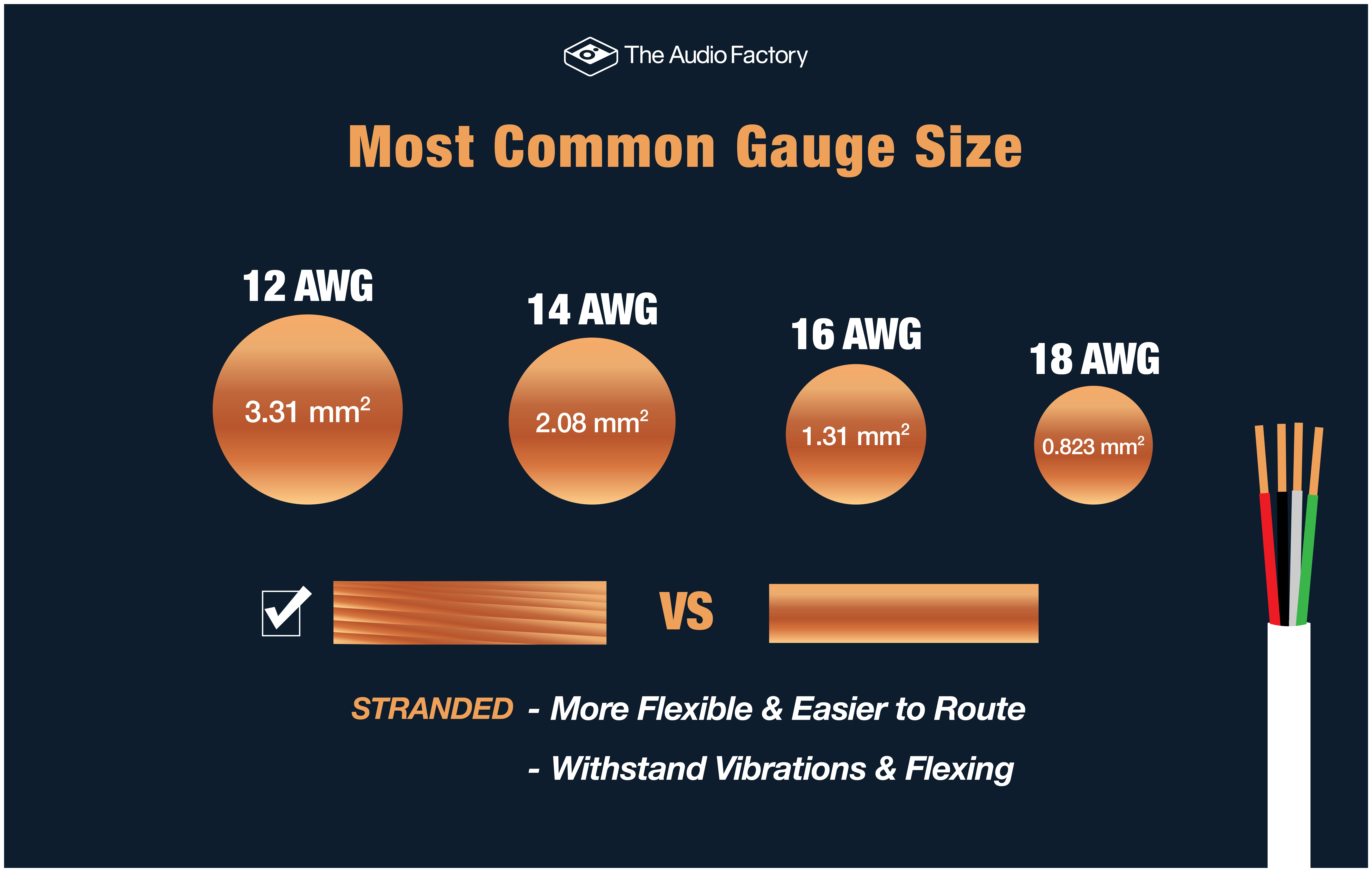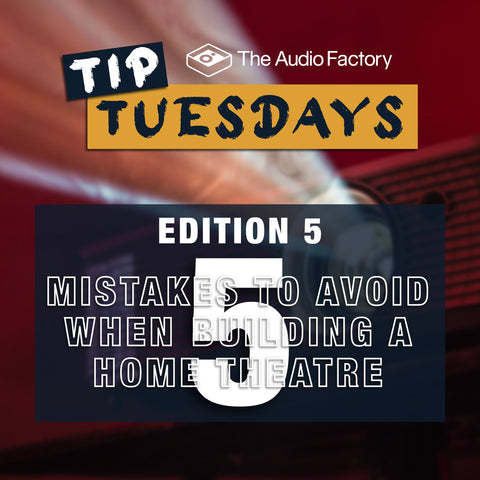Time for another edition of Tip Tuesdays! For any newbies, Tip Tuesdays is a newsletter series we are running where we provide you with tips and tricks to help you get the most out of your equipment and setups, as well as fun facts and information about various topics in the field of audio and specifically premium audio.
Whether you're an audiophile looking to optimize your sound quality or a casual listener seeking to improve your audio experience, our team of experts will provide recommendations and insights on various topics.
Selecting the Perfect Wire Gauge for Your Speaker System
Selecting the ideal wire size for your audio speakers can pose a challenge, but fear not! Equipping yourself with fundamental knowledge about speaker wires can assist you in making an informed choice.
The gauge of a wire, commonly referred to as the American Wire Gauge (AWG), indicates its thickness. Keep in mind that thinner wires are indicated by higher gauge numbers or AWG, whereas thicker wires are indicated by lower gauge numbers. For example, a 12 AWG wire is thicker than an 18 AWG wire. The most popular choices for audio speaker wires are 12 gauge, 14 gauge, 16 gauge, and 18 gauge.
When comparing speaker wire options, it's critical to keep in mind that stranded wire is more flexible, easier to route, and more resilient to vibration and flexing than solid wire. Because of this, despite having a slightly higher initial cost due to the complex manufacturing process, it is more frequently used in audio speaker wiring.
The wire thickness you choose is very important because it affects the speaker circuit's overall resistance, which affects how much power is transferred from the amplifier to the speakers. The amount of resistance to an electric current is referred to as resistance. When choosing wires for the best audio experience, keep these aspects in mind.

Cable Length and Distance
When choosing the appropriate wire for your audio speakers, it's crucial to consider both the cable run length and the impedance or power requirements of your speakers. Start by measuring the distance from the amplifier to each speaker in your system and make sure that add about 4 to 6 feet of extra cable slack on each end.
Once you know the length, it’s time to choose the wire gauge size. For loudspeakers with a nominal impedance of 4 ohms or less and requiring high, non-remote power, the selection of 14 or 12 gauge wire is recommended For most 8-ohm loudspeaker circuits with runs less than 50 feet, 16-gauge wire would be the best choice.
However, if the wire run extends beyond 75 feet, it is advisable to choose at least 16 gauge wire, or even consider 14 or 12. Cable resistance increases significantly over long distances, so with wire, a coarse gauge is used, which helps to reduce resistance and improve efficiency. Taking the cable run length and your speaker impedance into consideration ensures that you choose the right wire gauge for an efficient and reliable audio system.

Final Points
And that’s a wrap on this shorter-than-normal newsletter. There are actually a lot of aspects we could have mentioned regarding audio wires, but we decided to just focus on one this time around. As with most things in the home theatre world, there are plenty of fun things to learn if you want to dig into the details. There are lots of additional resources online so make sure to look into other sources when purchasing new wires. More importantly, don’t be afraid to ask for online support if you ever have any questions.
And just to summarize the information above, thicker wires (12 or 14 gauge) is recommended for longer wire runs high power applications, and low-impedance speaker (4 or 6 ohms). For relatively short runs (less than 50 feet) to 8 ohm speakers, 16 gauge wires will usually do just fine. It’s cost-effective and easy to work with.
Keep in mind that if you do want to go for a more expensive ‘audiophile’ wire, that’s up to you – but in most rooms, it’s unlikely to make much difference to the sound. Keep it simple and spend extra money on a better amplifier or speaker.
Thank you for reading through our newest edition of Tip Tuesdays. We hope you enjoyed it. Don't forget to visit theaudiofactory.com for all your audio needs and browse our variety of premium brands and products. Keep an eye on your inbox for the next edition of Tip Tuesdays!





Comments (0)
There are no comments for this article. Be the first one to leave a message!